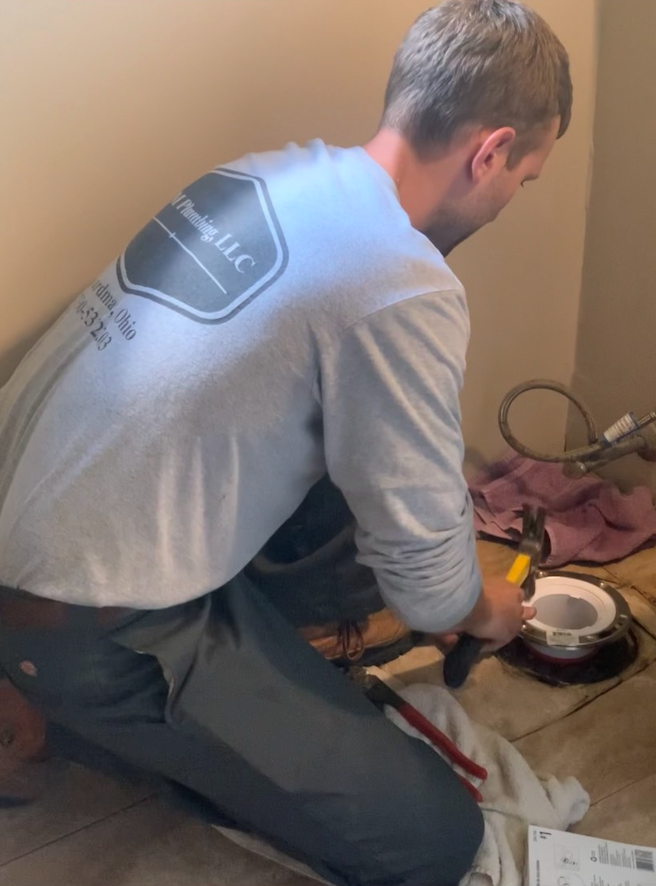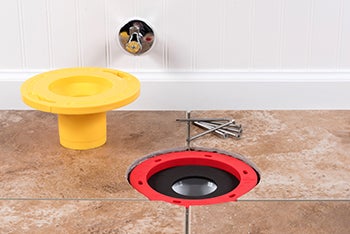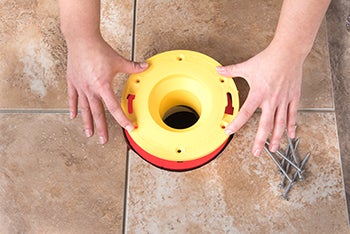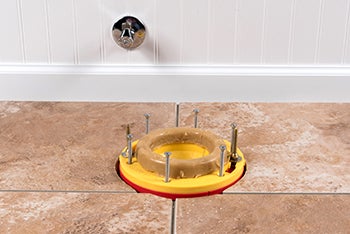Have you remodeled your bathroom recently? If so, maybe you’ve noticed problems with the toilet.
To get more specific: Is it rocking noisily when you take a seat? Or maybe you've noticed water pooling at the base. Perhaps the flooring surrounding the toilet feels soft. Or water spots have appeared on the ceiling located directly below the toilet.

If any of these problems are present, chances are the toilet flange (also called a closet flange) was installed incorrectly. Most likely, the installation was done by someone lacking the necessary professional skills and experience, causing more damage on top of a poor installation that will need to be fixed later.
Master plumber Mike Mistovich, sole owner and operator of L&M Plumbing, LLC of Youngstown, Ohio, knows your pain. His shop often receives service calls from homeowners who have noticed their toilets are rocking in their bathroom — usually around six months after they've completed a renovation.
"In our area, many remodelers tend to do much of the work on construction projects themselves, avoiding contract work with plumbers or electricians to save money,” says Mike, who has 19+ years of experience specializing in residential plumbing and drain services. “That, in turn, can lead to incorrect installation and negligence."
The problem? When a remodeler builds the floor up in a bathroom, the upgraded floor inevitably impacts the toilet flange height, according to Mike. Best practices call for the flange to be installed flush with or atop the finished floor. Placing it beneath a tile floor will cause drainage issues — especially leaks.
In addition, a toilet flange sitting below the tile will create instability for the user over time. Toilet flanges are essential in securing the toilet to the floor; if compromised, rocking and leaks will soon result, absolutely spoiling a newly renovated bathroom.
"A toilet is like a piece of furniture and should be mounted on the floor properly," advises Mike, who relies on Oatey's Set-Rite® Toilet Flange Extension Kits to raise toilet flanges during or after a remodel. "That’s why I always have my flange extenders with me to correct an improper toilet flange height during repairs.”
The Oatey Set-Rite Toilet Flange Extension Kits include spacers in four different sizes, plus six self-tapping screws that complete the installation. For professionals like Mike, extending any existing flange is much easier than installing new.



"I can pop the spacers in and secure them to the floor, or even to old flanges," says Mike, who finds the kits’ versatility to be very useful.
“It's a quick repair that homeowners appreciate,” he continues. “For me, easy installation is the most important benefit. It usually doesn't require pulling up the old flange or any subfloor restoration, which saves time and money.”
Oatey Set-Rite Toilet Flange Extension Kits allow users to easily extend the toilet flange surface above the finished floor for optimum sealing with a standard wax ring. The kits can be used on existing PVC, ABS, cast iron, and stainless steel flange rings. Spacers can also be combined to meet the desired height, while a foam rubber gasket seals the spacers to the new flange.
While Youngstown has no shortage of blue-collar workers with professional-level skills, it does help to have a reliable, seasoned service plumber just a phone call away. Having worked in plumbing for nearly two decades, Mike is no stranger to Oatey products. And he can always count on Oatey Set-Rite Toilet Flange Extension Kits to provide a watertight solution for raising a toilet flange — whether as part of a simple fixture repair or a full bath remodel.